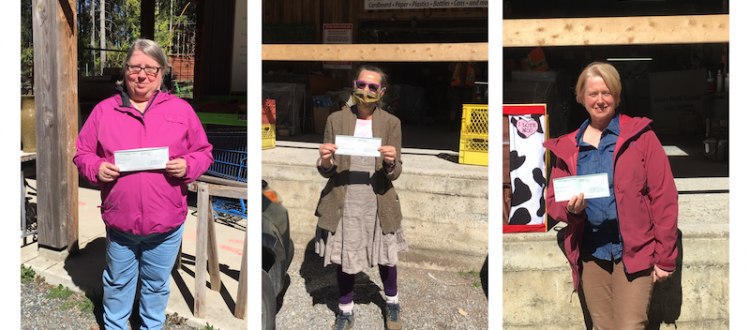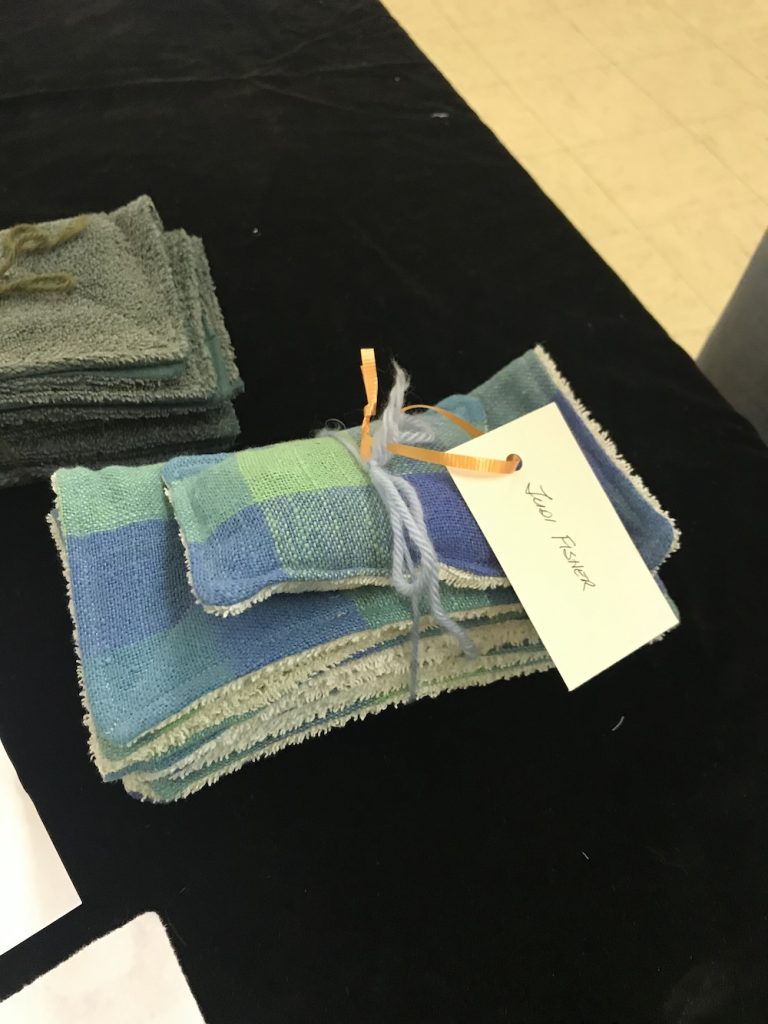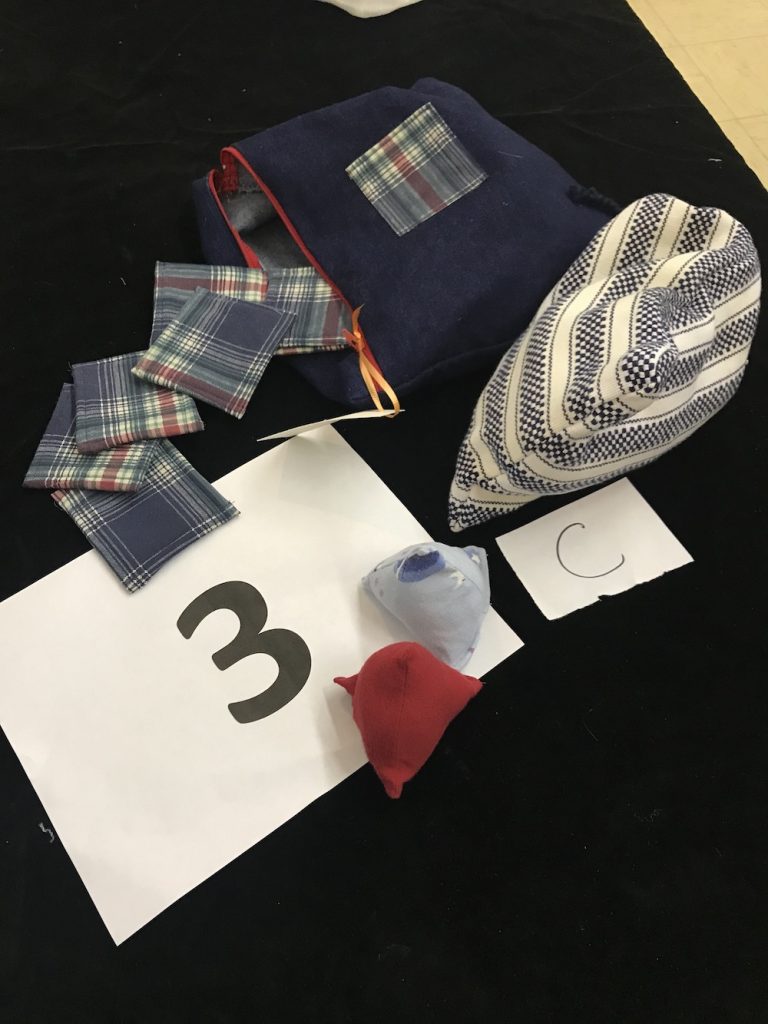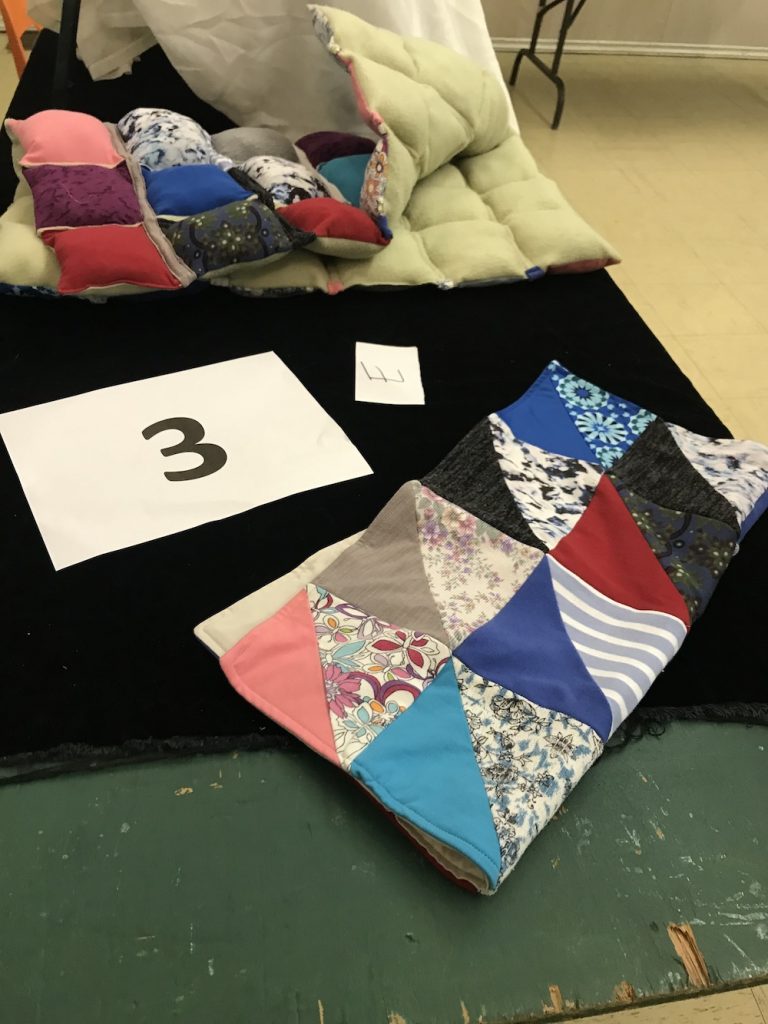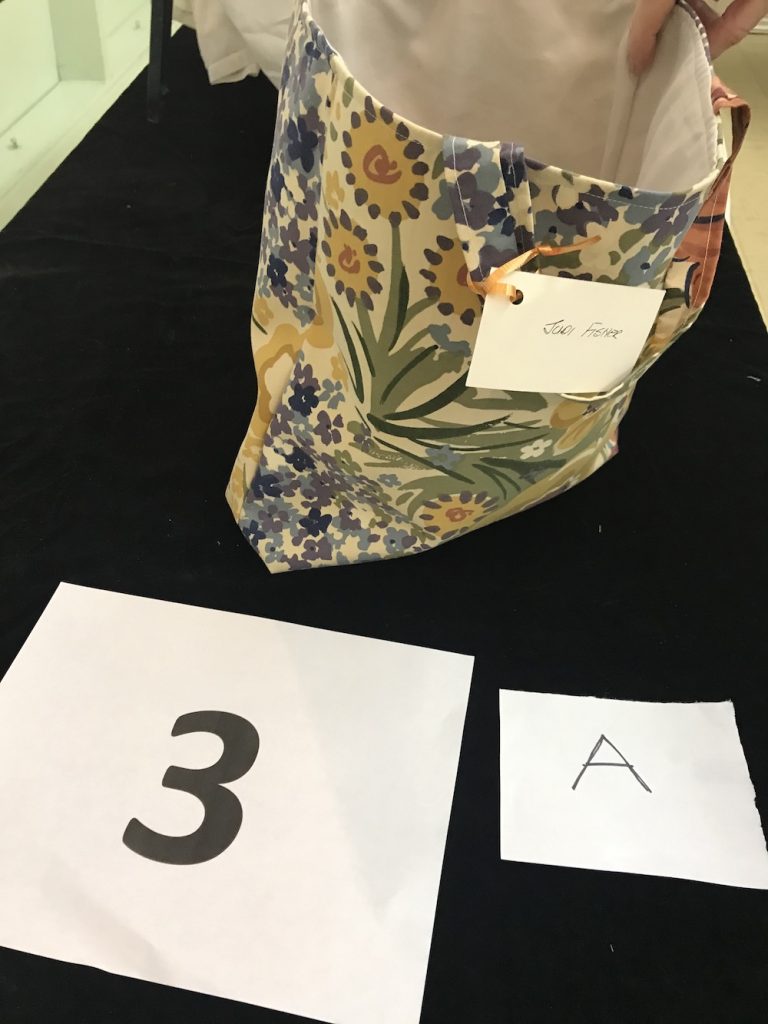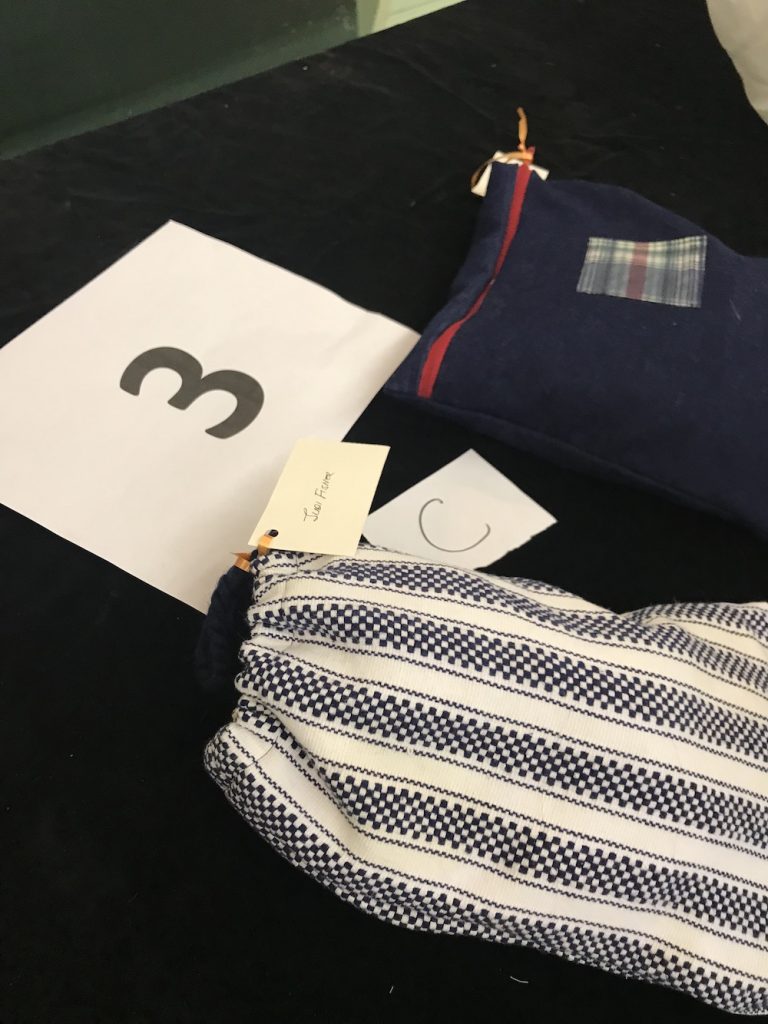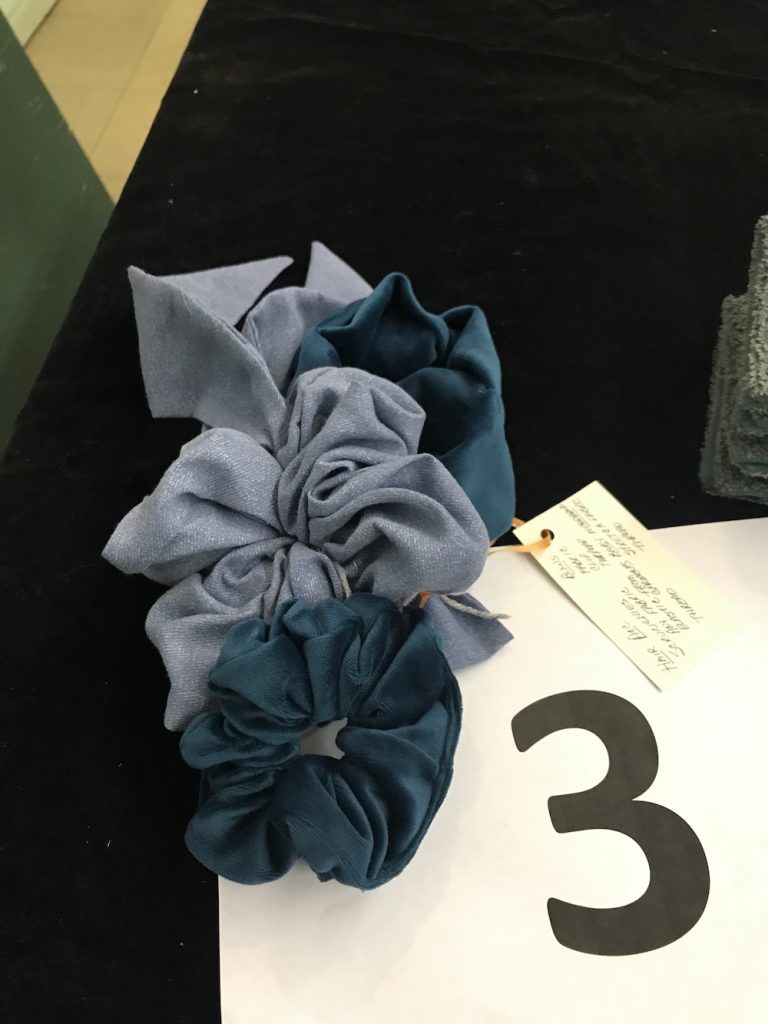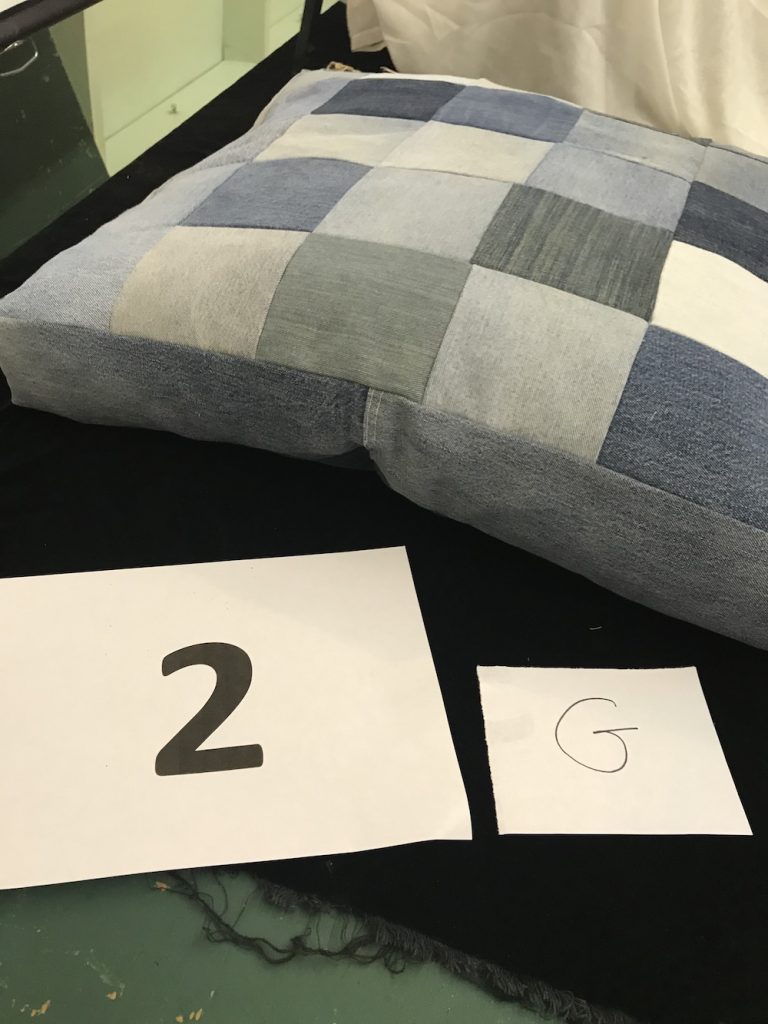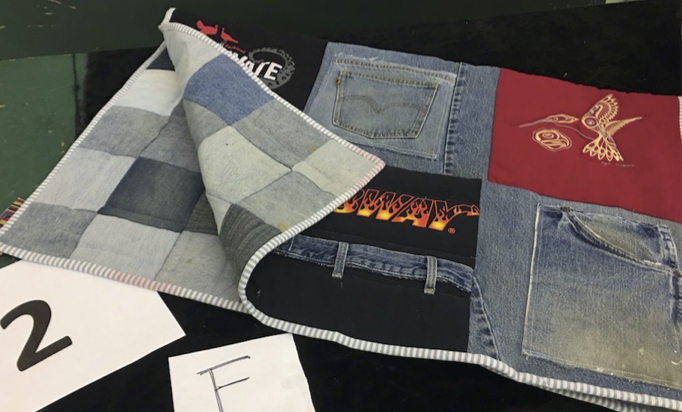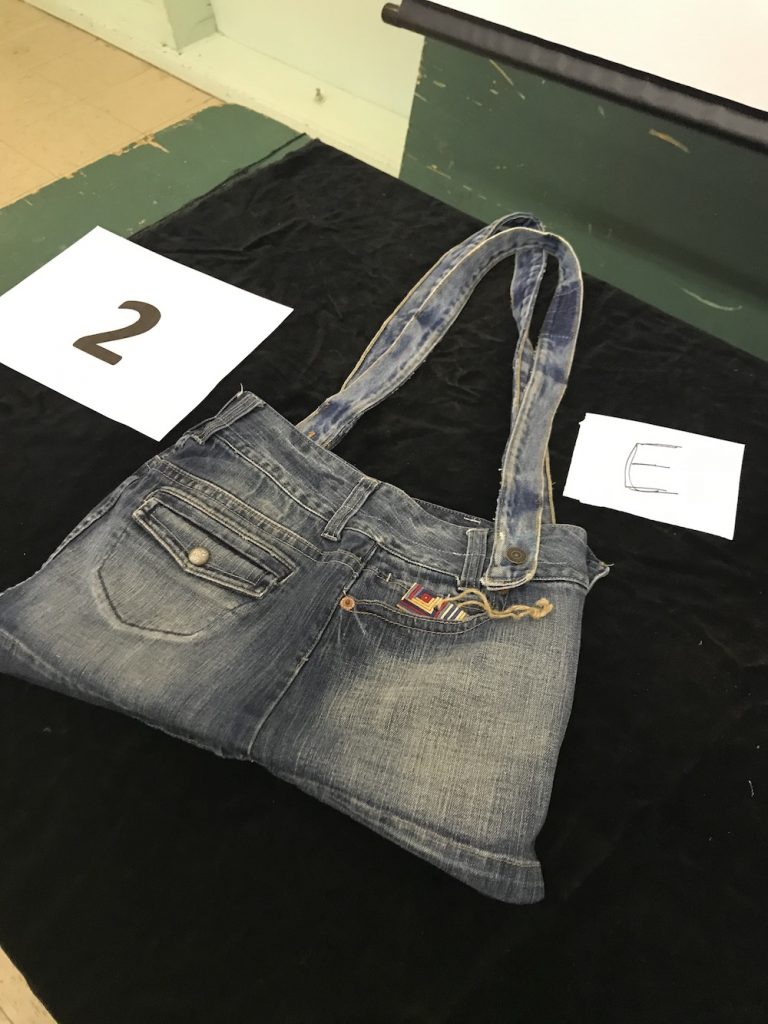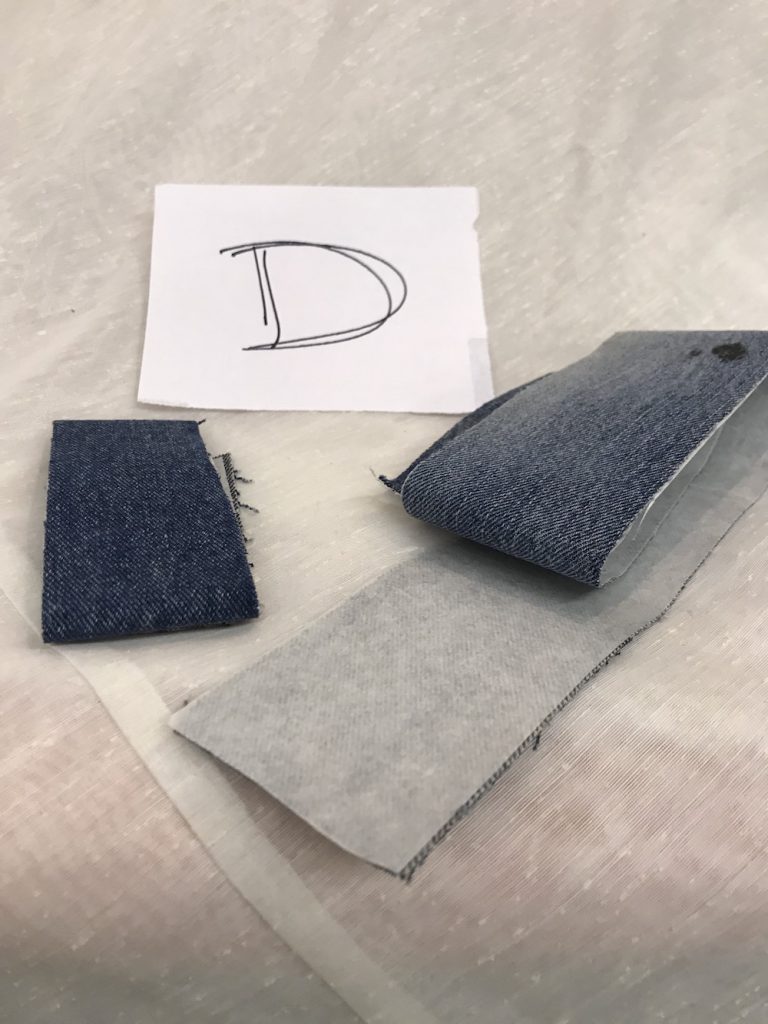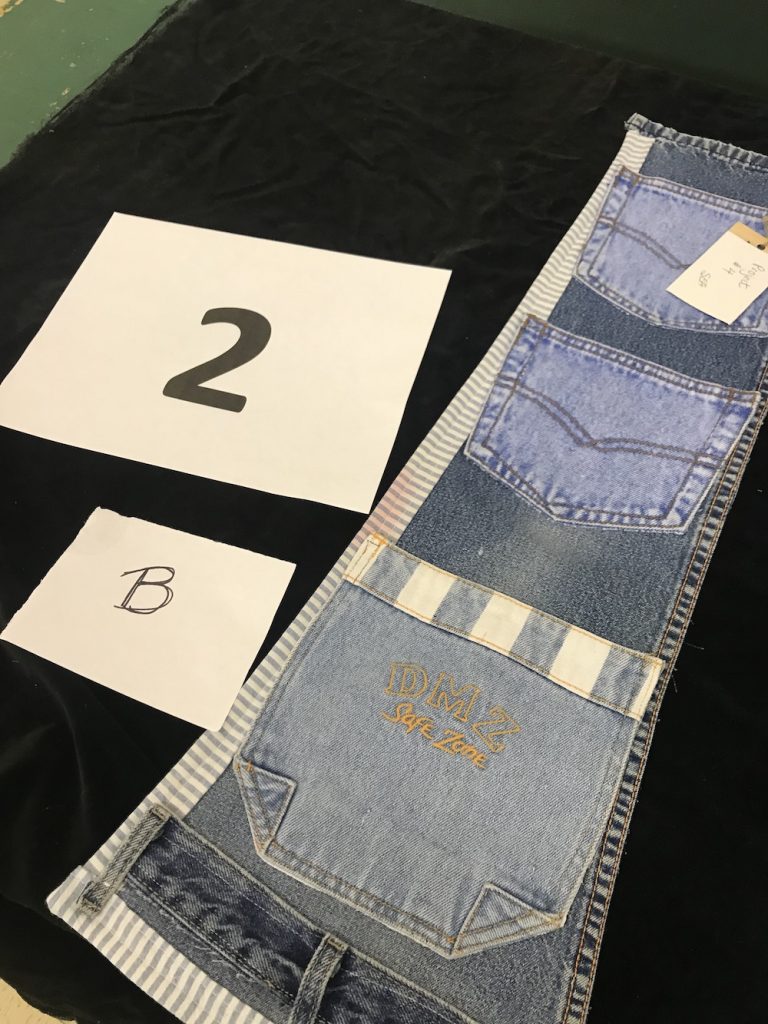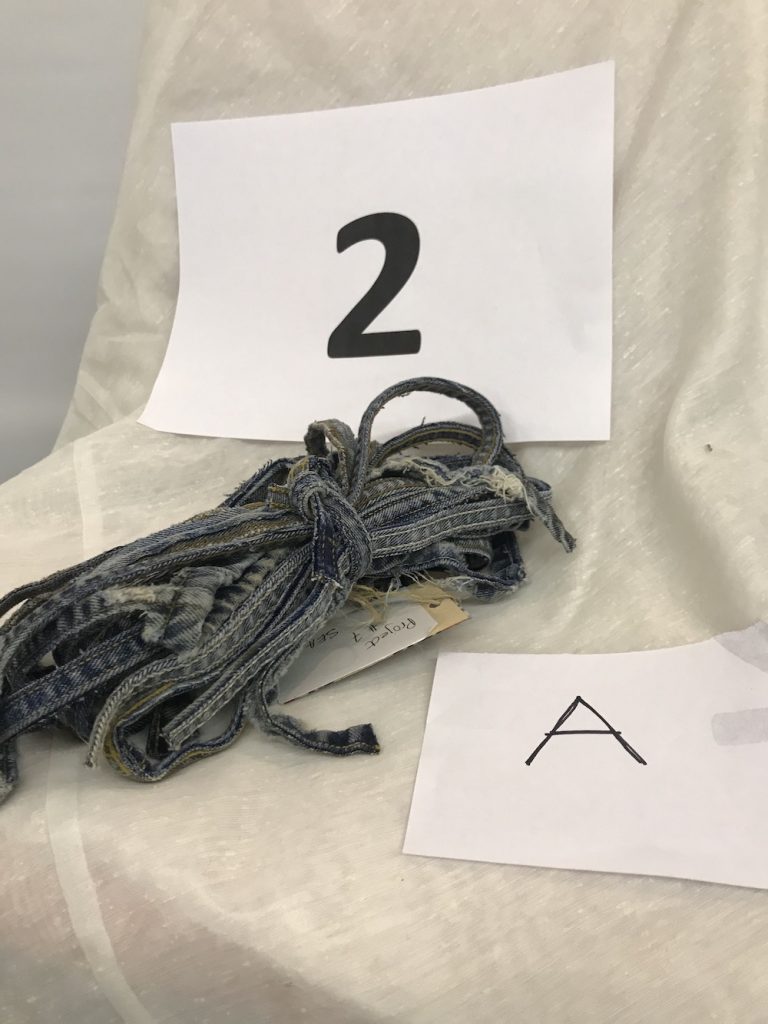Winning designs for C2C Threads Initiative and next steps
Since the RDN funding was awarded to us in February, GIRO’s C2C Threads team have been busy collaborating with community members to explore potential design ideas for the C2CThreads product line.
We held two COVID safe events where all those who signed up to be a “Designer” came to the Agi Hall to select fabric material to make into a redesigned, upcycled potential product. The products were then submitted on March 20th and evaluated by our assessment team. The assessment team scored each submission based on the following criteria:
- Design of product (balance, lines, colour, flow)
- Functionality/practicality of product/ physical durability
- Production characteristics: ease of production and time to produce relative to potential price of product.
- Marketability of product, emotional durability (how long will it stay relevant), and does it fill a need.
The results from the assessment team were then taken to the C2CThreads Advisory Panel to make a final decision.
The process of choosing the final products was extremely challenging as all the submissions had merit and were excellent examples of rethinking and reducing textile waste as well as showcasing a range of sewing skills.
Here are the three winning designs and our rationale for choosing them:
- Maureen Connelly : Acoustical wall panels
- Judi Fisher : Un-paper towels and children memory games
- Sue Artuso : Dog Bed
The three designers each received $500 in prize money for their winning designs.

Maureen Connelly : Acoustical wall panels
Maureen is a professor at BCIT who has been researching with some of her grad students the viability of using polyester material to make acoustical sound panels.
Acoustical sound panels are layers of polyester textile or pockets (baffles) stuffed with shredded polyester, which capture sound and therefore reduce the noise reverberation in a room. They essentially look like a picture which could be a solid piece of textile material or more artistic and three dimensional like a textile wall hanging. Inside the panel there are many layers or a specific density of stuffed baffle which will capture the noise in a room. These sound panels have multiple applications in homes, offices, large spaces like gymnasiums, community halls, theaters, anywhere where there is too much echo or noise. The panels can be quite large (up to several feet) and will therefore require a good amount of poly material to fill the baffles and create an attractive cover. This means they will use up a good amount of the GIRO waste stream. They require a polyester or poly/blend which is material that currently makes up about 50% of the GIRO waste stream. The panels are made using polyester because it is fire retardant, mildew resistant and rodent proof. We are working with Maureen to develop a prototype that has a certain sound absorbency based on the type of fiber used and the volume of shredded fiber per baffle. Once the prototype is complete, we feel confident that this is a marketable product.
Judi Fisher : Un-paper towels and children memory games
Judi has been an avid sewer for over thirty years.
The un-paper towel idea caught our attention as it is a product that is replacing a “single-use” product. It is therefore supporting how to rethink consumer behavior. The towels were a double layer of towel on one side and a cotton fabric on the other. They could also be used as a face towel or napkin. She made a darker coloured towel that could be used for anyone working in their workshop space needing a handy towel wipe that can be washed and used again and again.
Judi also made two children’s memory games which consist of a cloth bag containing small hand-sized cloth objects of matching colors. We believe that these are great toys for young children to practice memory skills. All the toys can be washed and re-used. Comparing these to memory games at the store Kool and Child with a price point of $50. we believe they would be a marketable product.
Sue Artuso : Dog Bed
Sue is another avid sewer who aims to reduce and rethink.
The dog bed idea caught our attention as it is a creative way to use up a lot of the waste stream both for the cover material and the shredded stuffing. Made of durable material that can be unzipped and washed we believe this product has solid marketing potential. The purchase price for a large dog bed ranges between $60-$100.
Sue presented several products where her aim was to use up every piece of the fabric that she picked up from GIRO including the seams from jeans which she bundled and said could be used to tie up garden plants. This zero-waste mentality was inspiring and aligns with how designers in the fashion industry are working to minimize waste and off-cuts when designing a garment. The average off-cut wastage can be as high as 20%, new designers are aiming for 2% or less.
Next steps
The C2CThreads Initiative is an ongoing organic process. Over the last two months it has become clear that several designers have expressed that they have one or more of the following goals:
- Become an entrepreneur.
- Teach / facilitate workshops for community members or as an activity at the Gabriola Elementary School
- Have access to a “makers space” where they can use specialized equipment, attend workshops, expand their skill set.
- Have access to a space where they can sell their textile product.
Our aim is to continue to build partnerships with any community members that would like to be a part of this initiative. Our next steps will be to hold a discussion on April 28th at 1.30pm with any community members interested in one or more of the goals listed above.
If you are interested in attending the discussion, please email us at C2Cthreads@girodepot.com to request the zoom link for the meeting.
In May we are hoping to hold an auction that will feature many of the items created by the designers.
A big shout-out to everyone for their continued enthusiasm to share their upcycled clothing ideas and for offering their time and energy to help us find solutions for this waste stream.
As Margaret J. Wheatley said “There is no power for change greater than a community discovering what it cares about”
Michelle Kresnyak

